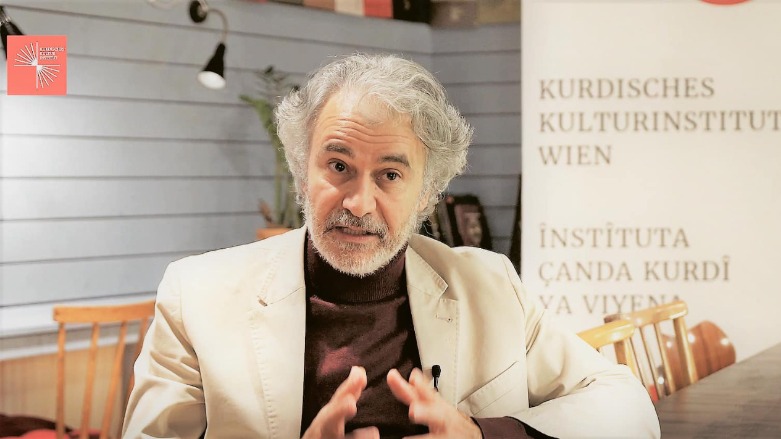Rojava writer uses 'soft power' to get his voice heard

Famed writer Jan Dost, much like the Syrian Kurdish city where he's from, Kobani, has suffered a lot. Channeling that suffering, he uses his soft power to produce literary masterpieces.
In an exclusive interview with Kurdistan 24, Dost noted that, to him, "writing novels is one of the strongest elements of soft power."
"Words are powerful," and through writing, he said, he tries to tell the world the roots of the Kurdish people and history.
"Novels can carry the Kurdish voice beyond borders. Thousands of readers around the world can know Kurds better," he added, noting that he had "learned a lot about the Chilean situation from the novels of Isabel Allende."
Dost was born in Kobani but left amid persistent instability and has been living in Germany since 2000.
He writes in both Arabic and Kurdish, having published 12 novels so far, including Blood on the Minaret (2013), A Green Bus Leaving Aleppo (2019), Mirnama (2008), The Manuscript of Petersburg (2020), The Bells of Rome (2017) and Kobani (2019).
He is now working on a new novel on the life of Melayê Cizîrî, one of the most revered classical Kurdish poets.
Dost expressed he is glad Kurdish novels have found success in the Arab world. "Arabs know but a little about Kurdish people. I give them the Kurdish history and the Kurdish issue in detail, far from chauvinist propaganda, and I am glad that they read and welcome my novels."
The author also writes poetry, having published four works: Diwana Jan (2008), Kela Dimdim (1991), A Song for Kurdistan's Eyes (1996), Poems the War Forgot in Poet's Pockets (2019).
The quality of Dost's work has turned him into one of the most respected writers in modern Kurdish literature.
"Jan's novels are like a school; they have taught me a lot," said Nazim Qaddoor, an Arab reader from Baghdad. "Through his novels, I learn about our Kurdish brothers, how they lived, how they suffered, and how they are in their hearts."
During a recent book tour in the Kurdistan Region, fans warmly welcomed Dost with high praise and respect.
"As a reader, I am proud of Jan Dost," Nima Karzan, a fan from Sulaimani, said. "His novels enlighten me and make me want to read more and more."
Dost further explained that he believes that what one cannot achieve using politics, one can achieve through literature, adding that he would welcome literary interpreters to translate his works into English.
"Translators are engineers that create bridges between nations and cultures," he said. "The KRG's ministry of culture should start supporting translators so that they can introduce our literature to the world."
